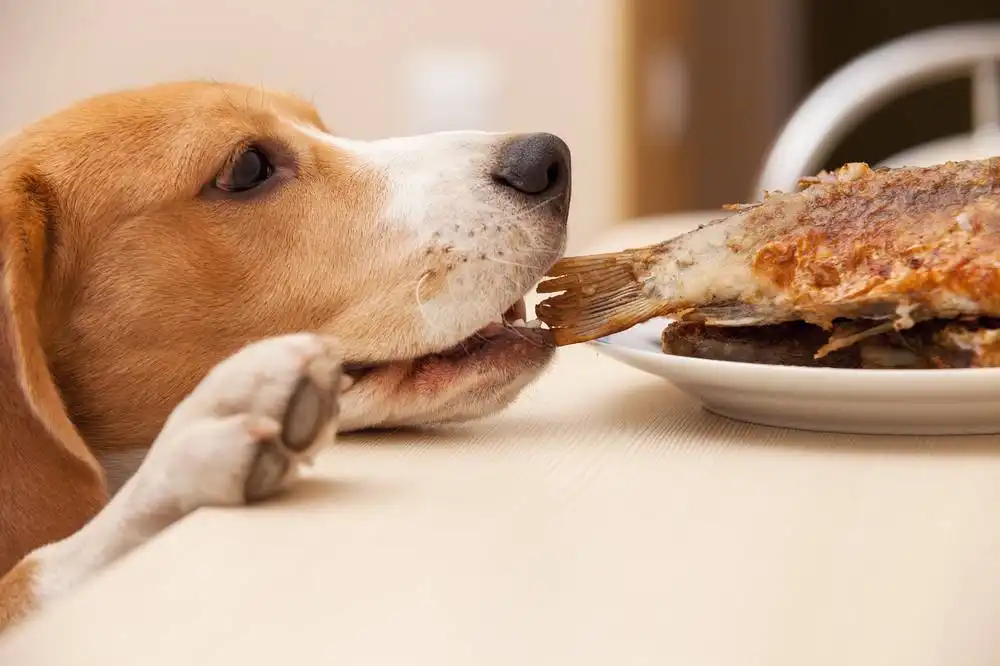Harmful Foods for Dogs
Human food can cause serious damage to a dog’s body. And we are not only talking about those products that are truly poisonous for it. A pet can also suffer from a dish that seems harmless, but is prepared without taking into account the animal’s needs.

Beware of poison!
There is a whole list of products that are truly dangerous for dogs. This is chocolate – the substances it contains lead to heart rhythm disturbances, hyperactivity, excessive muscle contraction up to convulsions, even death. Alcohol leads to increased heart rate, swelling of the mucous membranes, and increased temperature. Avocado can cause lethargy, weakness, and heart disease in dogs. Grapes and raisins – provoke the development of kidney failure.
Also dangerous products include macadamia nuts, onions and garlic, and the sweetener xylitol. Other dangers in nutrition include an excess of certain nutrients, which can negatively affect the dog’s health. For example, the intake of increased amounts of lactose from dairy products can cause diarrhea, and an excess of protein will lead to excessive fermentation in the intestines.
Food without benefits
It is important to understand that generally harmless products are not always useful for the animal. It is all about the balance of nutrients and microelements, as well as the degree of digestibility of food.
A dog should receive a balance of 6 groups of nutrients with food, which include: proteins, fats, carbohydrates, vitamins, minerals and water. Excess or deficiency of any of them can lead to health problems for the animal. For example, zinc deficiency leads to the development of such a disease as zinc-dependent dermatosis, i.e. skin lesions, mainly in the area of the dog’s muzzle. In severe cases, zinc deficiency can lead to growth retardation in puppies. With an excess of zinc, the digestibility of other elements, such as iron and copper, decreases.
Dogs are curious creatures and often beg for scraps from the table, but many human foods can be extremely dangerous—even deadly—for them. As a responsible pet owner, it’s crucial to know which foods to avoid to keep your furry friend safe. Some foods cause mild digestive upset, while others can lead to severe poisoning, organ failure, or death. Below is a detailed look at the most harmful foods for dogs and why they should never be consumed.
Symptoms of its overdose: loss of appetite, vomiting, diarrhea, general lethargy. At the same time, it is quite difficult to understand how much zinc the animal has consumed with home-cooked food: after all, beef contains more of it than pork, and when feeding offal, it is important to remember that there is less of it in the kidneys than in the liver. The same can be said about other important elements: amino acids, fiber, iron, copper, sodium, vitamins, and so on.
Grapes and raisins are highly toxic to dogs, even in small quantities. The exact toxic compound is still unknown, but ingestion can lead to acute kidney failure. Symptoms include vomiting, lethargy, dehydration, and decreased urine production. Some dogs may show no immediate signs but suffer irreversible kidney damage.
As for digestibility, from 100 grams of beef, which contains approximately 20% protein, a dog receives only 75% of this protein (that is, only 15 grams), and, for example, from 100 grams of prepared food – about 90%.
Safe choice
To protect your pet from dangerous products and provide it with healthy, balanced food, it is recommended to consider using industrially produced rations. They contain all the necessary components for the animal in the right proportions. Such feeds are produced by various brands, for example, Royal Canin, Pedigree, Cesar, Chappi, Nature’s Table, Eukanuba, Pedigree.
A combination of dry and wet diets is considered optimal. Dry food helps take care of the dog’s teeth and has a beneficial effect on digestion. Wet food helps prevent excess weight and problems with the urinary system.







